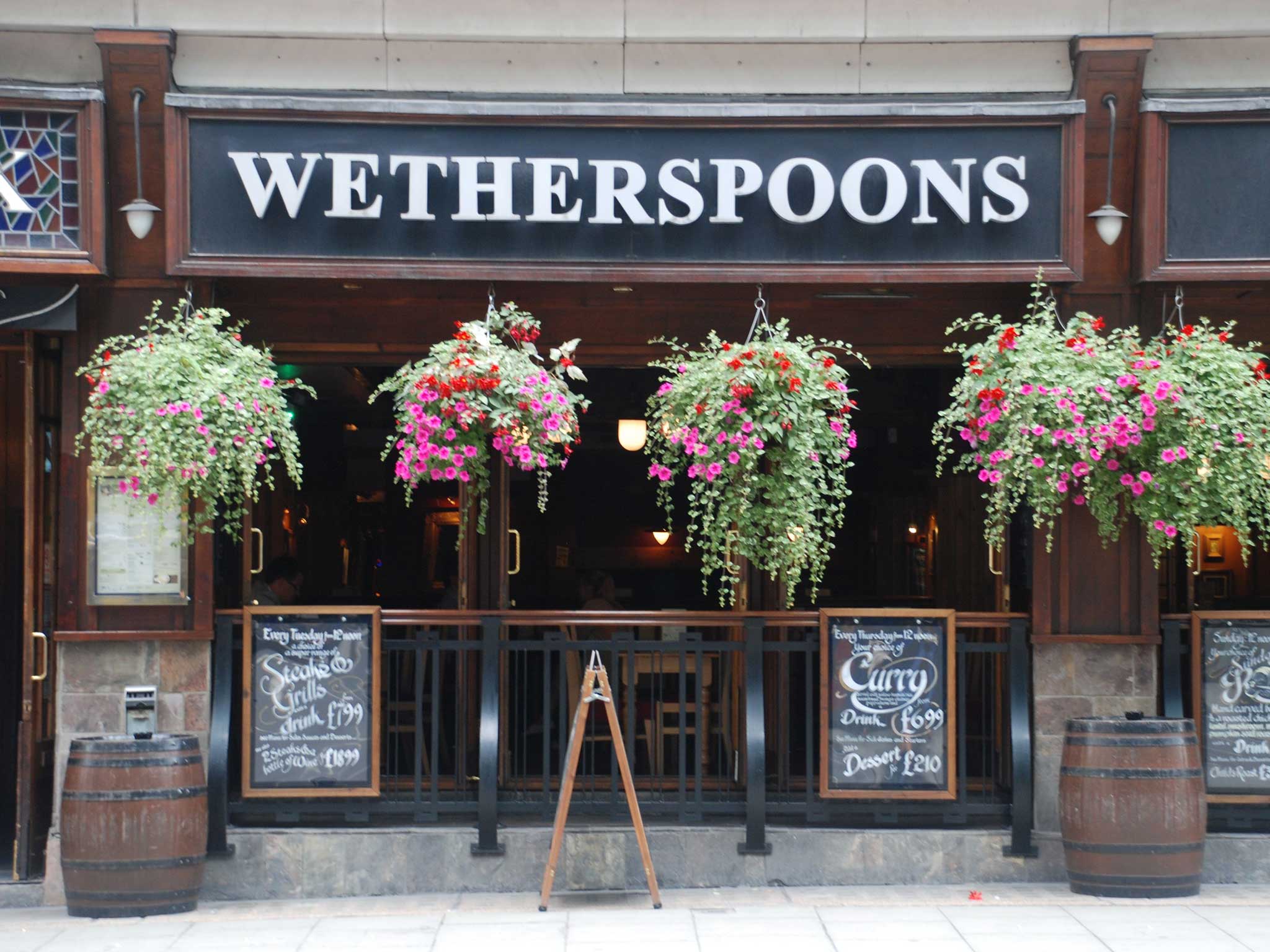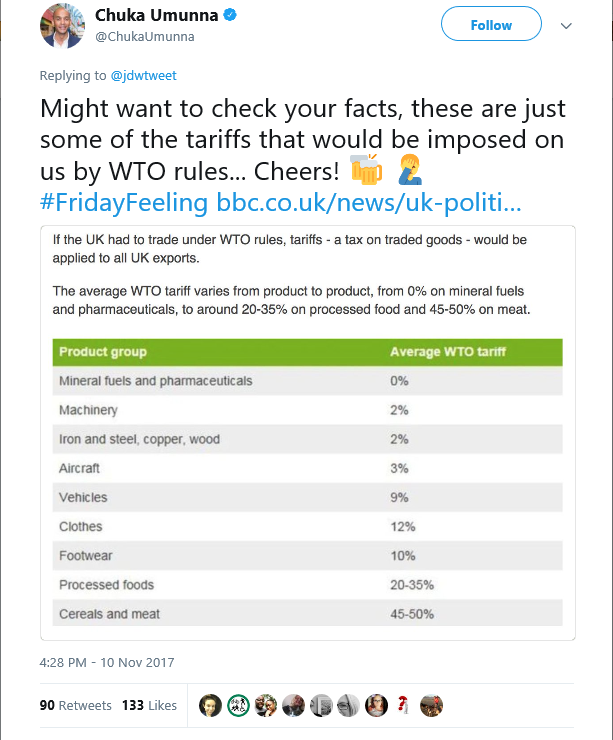Brexit will be great for our food industry and our pubs – that's why I stand against a second referendum
The false thesis is that reverting to World Trade Organisation rules, in the absence of an EU 'deal', automatically results in trade tariffs from the EU. This simply isn't true

According to historian Martin Gilbert the truth exists, but it’s hidden in a fog by lack of evidence and lack of perspective – other impediments include intellectual arrogance and misinformation, especially in politics. It’s fascinating to see, at close quarters, the process by which myths are dismantled and the truth emerges in our democratic system.
The Confederation of British Industry (CBI) and the British Retail Consortium (BRC), abetted by the chairmen of Whitbread and Sainsbury’s, have had considerable success in creating a fog which has misled the public, MPs and commentators about food prices. The Financial Times, Sunday Times and Guardian, for example, have all run stories stating that failure to agree a deal with the EU will result in substantial food price rises – a key part of their “cliff-edge” narrative of economic dislocation.
The false thesis is that reverting to World Trade Organisation rules, in the absence of an EU “deal”, automatically results in tariffs, currently imposed on non-EU countries only, applying equally to imports from the EU itself. This is untrue, since WTO rules allow our Parliament to emulate New Zealand, Singapore and Hong Kong, among others, by eliminating food tariffs, provided the policy applies equally to all nations. Such rules would, as many Remainers admit, cause prices to fall in shops – and pubs.
In a Jeremy Vine show debate the Labour MP, Chuka Ummuna, repeated the canard about food price rises. It was obvious that Chuka had swallowed the CBI line and really believed what he was saying, so I took to Twitter, for the first time ever, to try to correct his understandable misinterpretation. In an exchange of tweets, Chuka stuck religiously to his guns, but his followers got the point even so.

Their comments, hidden in a fog of abuse, abandoned the automatic-price-rise-post-Brexit position and instead said that UK farmers would suffer. That at least, unlike Chuka’s position, is a valid argument. Indeed, it was a vexed and divisive debate in the 1830s and 40s, when almost precisely the same issues arose with regard to the Corn Laws. They were created to keep corn prices at a high level, by restricting imports, principally to protect landowners whose views predominated in Parliament at the time. However, their imposition eventually had devastating consequences for the poor, and was felt by many to have had catastrophic consequences in Ireland during the potato famine. When the Corn Laws were eventually abandoned, food prices fell.
The pub industry in the UK was also notorious for “trade protection” for most of the 20th century. Brewers were protected by a licensing system which favoured vested interests, but caused high prices and reduced competition in pubs and restaurants. Nostalgia aside, it is clear to most people that the abandonment of “barriers to entry” has led to a dramatic increase in the number of independent pubs, bars and restaurants, and to greater choice and higher standards than in the past.
There are thousands of examples of the benefits to the public of increased choice and competition. New Zealand farmers, to take one example, were protected by trade barriers in the recent past. There was huge anxiety about the elimination of tariffs there, but free trade has been a great success — farming productivity has surged, living standards have improved and food exports have boomed.
For those with long memories, tariffs and protection also did little to help the British car manufacturing industry – and are unlikely to help British farmers or manufacturers today, especially in the long run.
The CBI and big-business boardrooms, through religious attachment to the EU – which follows their equivalent zeal for the disastrous Exchange Rate Mechanism and the euro – have undoubtedly fooled some of the people some of the time. However, in a democracy the truth will emerge, and Chuka and members of the public who have been duped will quickly see through the cloud of misinformation. In due course, the debate will move on to the question of the validity of the EU’s modern-day Corn Laws.
The emergence of the truth about food prices may, or may not, change political positions in the country about the EU, but the existence of the debate shows how democracy works, and why it’s the best system. The main argument in favour of Brexit, ill-understood in the echo chamber of Remain, is that the EU’s lack of democracy, its distant parliament, unelected presidents and unaccountable court prevent the very debates and direct dialogues with lawmakers, like Chuka, upon which freedom and prosperity depend.
Tim Martin is the founder and chairman of Wetherspoon

Join our commenting forum
Join thought-provoking conversations, follow other Independent readers and see their replies